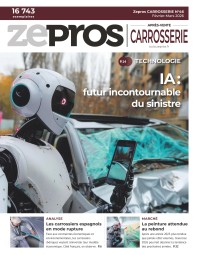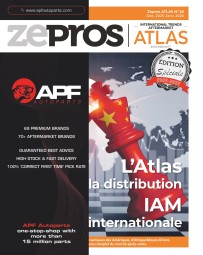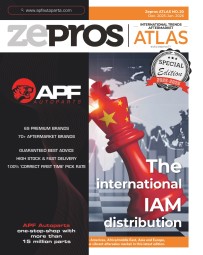
W. Espinoza, ATR: “Recent ATR growth has been driven primarily by shareholder expansion”

Warren Espinoza, CEO of ITG ATR International AG, looks back on 2023 for his group and gives us his vision of the challenges ahead for the ecosystem.
What is the outlook for ATR in the 2023 financial year?
Warren Espinoza: In 2023, the group, comprising 41 shareholders, generated a turnover exceeding €37 billion, reflecting robust organic growth (+10,5% compared to 2022). ATR has a global presence, with a substantial footprint in Europe and North America. However, geopolitical tensions arising from conflicts in Ukraine and the Middle East continue to impact operations in these regions. Although no new members were appointed this year, three new shareholders including Grupo Master from Guatemala, Andes Motor from Chile and hsy autoparts from Australia became a part of ATR last year. Our aim is to selectively expand our membership, seeking distributors that align with the cultural fabric of our existing community. ATR encompasses a diverse range of shareholders, from small distributors in niche markets to industry leaders. Additionally, ATR recently renewed agreements with its preferred global suppliers. For 2023, we’ve chosen to enhance our focus on the utility vehicle sector.
Is the consolidation of industry players still ongoing?
W.E.: As major corporations consistently pursue strategies for market expansion, the ongoing trend of mergers and acquisitions is projected to persist through 2024, involving both distributors and suppliers. Previously concentrated in developed countries, this trend is now gaining momentum in other markets. In Latin America, for instance, we can see the expansion of established giants like Autozone, venturing into Brazil. Additionally, recent developments include Stellantis investing in an independent Brazilian distributor, who is a member of ATR. This underscores the evolving landscape where distinctions between automotive brands and independent entities are becoming less defined.
In which markets is electrification becoming a concern for IAM?
W.E.: The Chinese market stands out as a frontrunner in the widespread adoption of electric vehicles, making it a significant focus. It’s inevitable that the influence of Chinese manufacturers and emerging suppliers will extend to Europe in the future. In Europe, the Nordic countries are taking the lead, witnessing a growing presence of electric vehicles in their fleets. Additionally, some of our members are already providing maintenance services for these vehicles. The outlook is promising for workshops that are prepared to adapt by undergoing training and acquiring the necessary tools for this evolving vehicle landscape. While electric vehicles represent the future, other technologies such as hydrogen engines or e-fuels should not be overlooked.
What role does digitalisation play in IAM?
W.E.: Digitalisation is a pivotal factor driving transformation in the delivery of solutions and services within IAM. In addressing the challenge of accessing vehicle data, ATR has been supporting initiatives from Caruso, FIGIEFA, and CLEPA to establish a fair legal framework for this access. Concerning garage solutions, we support Repdate, an open booking platform for workshop networks. To further support this trend, we host an annual “ATR Digital Conference” where our shareholders, suppliers, and experts engage in discussions about trends and the evolution of solutions.
Pour retrouver la version en Français : W. Espinoza, ATR : «La croissance d’ATR a été tirée par l’expansion de l’actionnariat»








